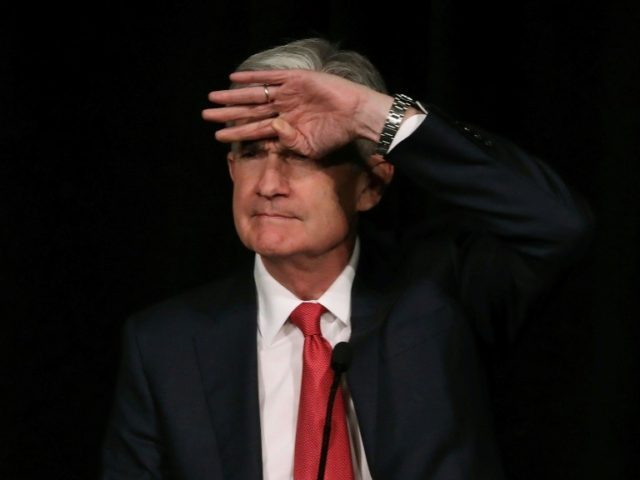Traders of interest-rate futures no longer think the Federal Reserve will continue to raise rates next year.
The odds of a rate increase implied by Fed funds futures contracts have declined rapidly. A week ago, futures trade on the Chicago Mercantile Exchange implied an 82 percent chance of a rate hike at next week’s meeting of the Federal Open Markets Committee, according to the CME Groups’ FedWatch tool On Monday, those odds stood at just 73.2 percent.
The odds now favor now hikes at all in 2019. There’s now a 53 percent chance that the Fed’s overnight target rate will not increase at all after the Fed hikes one more time.
The Atlanta Fed’s market probability tracker, which is based on a broader set of futures contracts, has also moved sharply against further rate hikes after December. It sees just a 35 percent chance of a rate hike in 2019.
The central bank has raised the federal funds target range eight times since it first began to lift rate from near zero in December 2015. At its September policy meeting, the Fed indicated that it expected to raise one more time this year and three times next year.
President Donald Trump has criticized the Fed and its chair Jerome Powell, whom Trump picked to run the central bank, for its interest rate policy on several occasions this year. Trump has argued that the Fed was working against his administration’s attempt to boost economic growth.
The Fed has said that it thinks the economy is currently growing faster than the long-term growth potential of the U.S., which the Fed sees as 1.8 percent. Many Fed policy-makers think this creates the risk of inflation overshooting the Fed’s 2 percent target, although most market and survey signals of inflation have declined in recent months. Raising rates is standard policy to stave off inflation.
The Trump administration has said it aims to grow the economy at 3 percent or higher, making a clash with monetary policy authorities nearly inevitable.
The stock market turned more volatile after Powell’s remarks in October appeared to indicate that the Fed believed it had a long way to go before monetary policy hit the “neutral”–the point at which monetary policy is no longer stimulating the economy but is not yet restraining it. Many investors interpreted this as a sign that the Fed would continue to aggressively hike rates even as global economic growth appeared to be slowing, giving rise to fears that the Fed could accidentally derail economic expansion in the U.S.
More recently, however, Powell and other Fed speakers have sounded far more dovish and taken notice that the economy appears set to slow next year. Powell said in a speech on November 28 that the policy rate is “just below” Fed estimates of the range for the neutral rate.

COMMENTS
Please let us know if you're having issues with commenting.